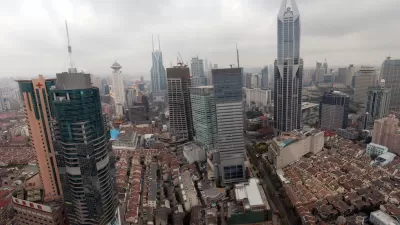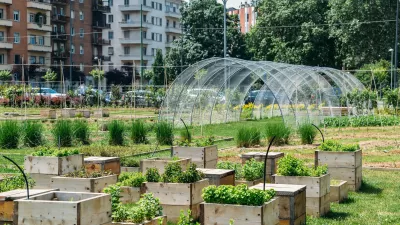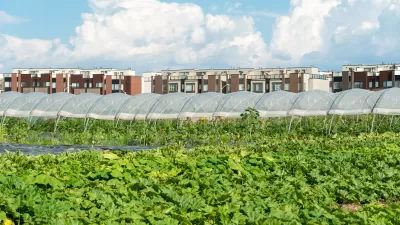Urban farming provides opportunities to increase food security in addition to other benefits.

This article features the many urban farms within the Pittsburgh area and the wide variety of advantages urban farming can bring to the city. Primarily, urban farms are created to address hunger and food insecurity. However, Dani Lamorte’s reporting highlights the multiple co-benefits that urban agriculture can bring to the city and its residents, including outdoor social space, mitigation of urban heat islands, reduction of the carbon footprint, reduction of food deserts, strengthening of food distribution networks, increasing neighborhood aesthetics, and providing opportunities for education and economic development.
The article also highlights the need for transparency and clarity in urban agriculture operations. City officials may be unaware of laws or codes pertaining to urban farming, which can impair critical conversations between the urban farmers and the city, negatively impacting urban farms. There are also far fewer Black-owned and operated farms (92) than white-owned and operated farms (89,328) within Pennsylvania, signaling a large racial discrepancy. Additionally, gentrification and a lack of connection to agriculture and the environment are critical issues in urban farming.
Productive landscapes such as urban farms can have significant positive impacts on their communities. This article serves as a call to action for a better understanding of urban agriculture to planners, city officials, and communities who can encourage urban farms in spaces where they can have long-lasting impacts and strengthen communities in need. They can be a vital resource for basic human rights, increase local food production and food security, and improve community and individual health.
FULL STORY: Urban farms in Pittsburgh can feed a hunger, if they’re allowed to grow

Maui's Vacation Rental Debate Turns Ugly
Verbal attacks, misinformation campaigns and fistfights plague a high-stakes debate to convert thousands of vacation rentals into long-term housing.

Planetizen Federal Action Tracker
A weekly monitor of how Trump’s orders and actions are impacting planners and planning in America.

In Urban Planning, AI Prompting Could be the New Design Thinking
Creativity has long been key to great urban design. What if we see AI as our new creative partner?

King County Supportive Housing Program Offers Hope for Unhoused Residents
The county is taking a ‘Housing First’ approach that prioritizes getting people into housing, then offering wraparound supportive services.

Researchers Use AI to Get Clearer Picture of US Housing
Analysts are using artificial intelligence to supercharge their research by allowing them to comb through data faster. Though these AI tools can be error prone, they save time and housing researchers are optimistic about the future.

Making Shared Micromobility More Inclusive
Cities and shared mobility system operators can do more to include people with disabilities in planning and operations, per a new report.
Urban Design for Planners 1: Software Tools
This six-course series explores essential urban design concepts using open source software and equips planners with the tools they need to participate fully in the urban design process.
Planning for Universal Design
Learn the tools for implementing Universal Design in planning regulations.
planning NEXT
Appalachian Highlands Housing Partners
Mpact (founded as Rail~Volution)
City of Camden Redevelopment Agency
City of Astoria
City of Portland
City of Laramie





























